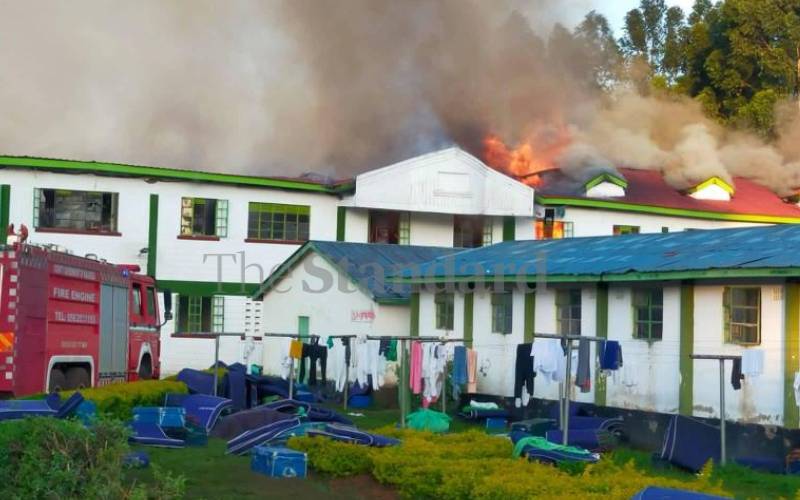×
The Standard e-Paper
Join Thousands Daily

A burning dormitory at Kakamega High School, November 6, 2021. [Benard Lusigi, Standard]
Wildfires across our schools has provoked a wide range of policy and procedural proposals from policymakers, teachers, parents, and students for the last several months.